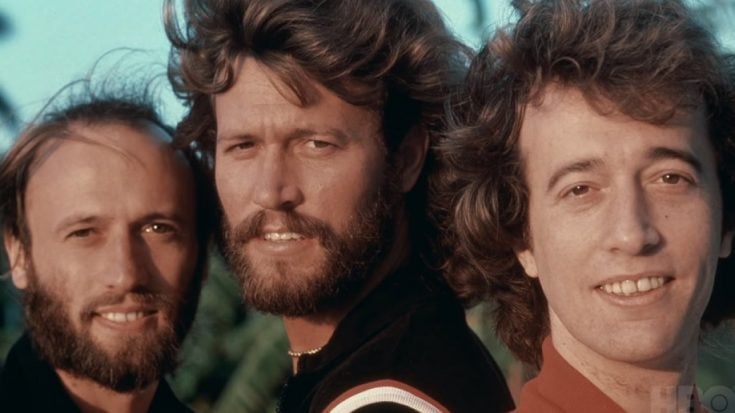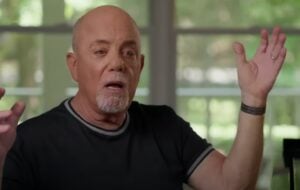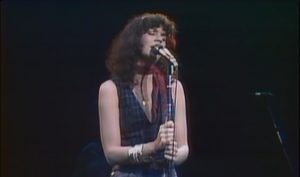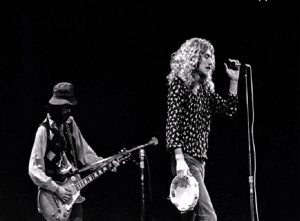10 Love Songs That Are Not Really About Love

The Bee Gees' new documentary film - HBO / Youtube
Soft rock is as non-offensive as it could be, which helps it appeal to a wider public. While the words are upbeat and the music has a serene vibe, it’s important to remember the time period it was written in. Many lyricists succeeded in keeping certain darker tales submerged in their soft rock songs so as not to compromise that pleasant AM radio exposure. Below, we have the top 10 soft rock love songs that aren’t really talking about love.
Barry Manilow – “Looks Like We Made It” (1977)
The chorus has a very upbeat, joyful tone, like a happy pair crossing the finish line of a marathon together. But the triumphant call even if he’s been doing it behind his current flame’s back, isn’t aimed at his present partner, but instead, toward a past sweetheart that he’s finally stopped yearning for.
Benny Mardones – “Into the Night” (1980)
Teenage females are frequently mentioned in songs from this time period, which is acceptable from the viewpoint of a young lad or an older man yearning for his youth. The protagonist’s friends directly advise him to avoid the 16-year-old jailbait in the first line of “Into the Night,” which doesn’t even attempt to pretend to be that.
Bee Gees – “Nights on Broadway” (1975)
“Nights on Broadway,” regarded by many as one of the Bee Gees’ finest songs, has a great chugging ‘70s beat, sparkling Gibb harmonies, and a determined stalker’s point of view. Here, the jilted boyfriend is standing in line to see his ex after she performed on Broadway; he followed her despite her express request that he does not do so.
Todd Rundgren – “Hello, It’s Me” (1972)
Until Todd Rundgren quietly mentions the true reason he’s calling—to “stay the night if you think I should”—the words in this song are mostly rather contemplative. And yep, Todd is asking for some 2 AM action.
Eric Clapton – “Wonderful Tonight” (1977)
Several songs, including “Wonderful Tonight,” were written by Eric Clapton for his ex-wife Pattie Boyd. At first hearing, this looks appreciative, but it isn’t. In his drunken rages, Clapton frequently hit Boyd, demonstrating his severe alcoholism. It doesn’t automatically qualify as the end of a cute tale that he made a lovely call to his then-enabler before he passed out.
Raydio – “You Can’t Change That” (1979)
The opening line of “You Can’t Change That” is a strong and sensible confession of love. He tells the person he is in love with that she can attempt to change her phone number and address, but she won’t be able to get away from him that easily as the song goes on.
Gilbert O’Sullivan – “Alone Again (Naturally)” (1971)
In case you don’t know this song, we’re here to remind you that this one is already somewhat depressing. O’Sullivan is depressed since his fiancée walked out on him at the altar, his parents passed away, and he is alone himself. But this must be the biggest American hit that occurs when the main character is actively preparing to commit suicide.
Chicago – “Saturday in the Park” (1972)
Though it doesn’t have a particularly sinister undertone, how can it be that he recalls every detail of that afternoon yet just “thinks” it was the Fourth of July? The protagonist is also alleged to have been using drugs.
Captain & Tennille – “Love Will Keep Us Together” (1975)
The cheerful “Love” was the top single for the whole year of 1975, making it the worst offender of the upbeat pop bait-and-switch. The remaining verses of the song are Tennille giving Captain advice on how to reject groupies whenever they approach him. She points out that if he still isn’t persuaded, he will soon become old and unattractive and will never find anybody else.
Rupert Holmes – “Escape (The Pina Colada Song)” (1979)
This Rupert Holmes song from the late 1970s tells the story of a contemporary married couple who are growing apart and seeking help from their therapists, who both urge them to spend some time apart. The largest, most evident issue is how they both casually joke about their mutual infidelity.





















